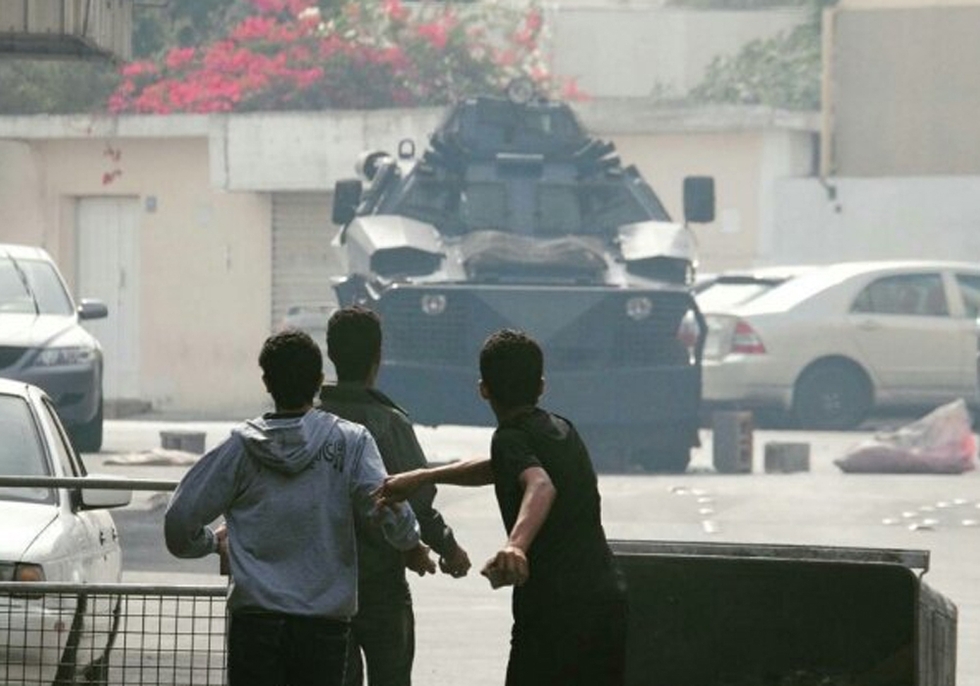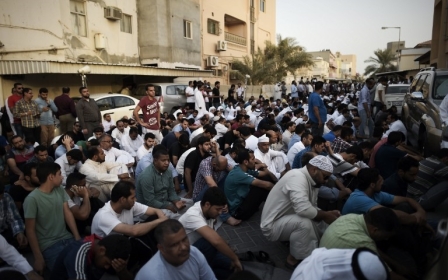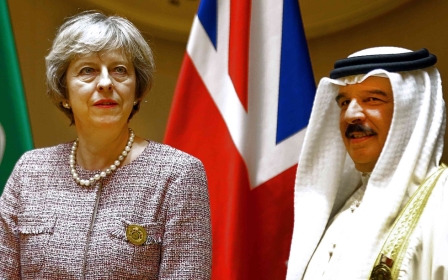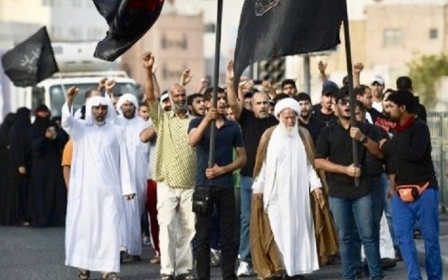Bahrain unrest: City hall torched as execution protests rage

Protesters set ablaze a city hall overnight in Bahrain, the government said on Monday, as fresh violence erupted over the executions of three men convicted of a deadly bomb attack on police.
The fire in the building at Shamalia, south of the capital Manama, was eventually brought under control, said the interior ministry, without explicitly linking it to the executions.
"According to initial reports, the fire was intentional and the specialised services are taking the necessary measures," the ministry wrote on Twitter.
The blaze came after three men were put to death by firing squad on Sunday over the bomb attack on police in 2014, sparking clashes between angry protesters and security forces.
"Sami Mushaima, Ali al-Singace and Abbas al-Samea were convicted of manufacturing and planting improvised explosive devices (IEDs) that were detonated remotely after luring first responders into the fatal ambush," said a statement by Bahrain's London Embassy.
Their executions were the first in the country since 2010. Rights campaigners said the three men were tortured into confessions.
Protests continued overnight, with dozens of men and women marching through the streets of the village of Sanabes chanting slogans against the Khalifa dynasty, according to witnesses.
Demonstrators tried to reach the main street of Sanabes, the hometown of the three executed men.
Sanabes is the closest village to the Pearl roundabout, the epicentre of a month-long uprising that the security forces crushed in mid-March 2011.
The square's famous monument was razed to the ground after the protesters were driven out.
Protests turned violent overnight in several other villages, according to other witnesses who said police opened fire to disperse demonstrators, wounding several of them.
Bahrain's authorities do not permit international news agencies to cover events independently.
The executions were criticised by international human rights groups, as well as Britain and the European Union.
Sayed Ahmed Alwadaei, director of advocacy at the UK-based Bahrain Institute for Rights and Democracy, called it "a black day in Bahrain’s history" and warned that "King Hamad’s decision to have them killed shows a new contempt for the victims of Bahrain’s abuses".
The human rights organisation Reprieve also slammed the executions as a "disgraceful breach of international law" and criticised the UK government for maintaining close relations with the kingdom, as well as providing financial support for alleged reforms of the country's legal system.
"The execution of these torture victims was made possible by various actors in Bahrain's criminal justice system, and the UK is providing assistance to all of them," said director Maya Foa in a statement on Sunday.
"In the last four years, the UK government has paid more than five million pounds to train Bahraini police officers, prosecutors, judges, prison guards in the death row prison where these men were held, and a supposedly 'independent' torture watchdog which declared one of these men was lying about his torture allegations without ever conducting a medical examination.”
Iran and the Lebanese Shia movement Hezbollah strongly condemned the executions.
Bahrain, which has been ruled by the Sunni Khalifa monarchy for more than two centuries, has a majority Shia population which has long complained of marginalisation.
It has been rocked by sporadic unrest since the Saudi-backed security forces crushed the Arab Spring-inspired uprising in 2011.
Middle East Eye propose une couverture et une analyse indépendantes et incomparables du Moyen-Orient, de l’Afrique du Nord et d’autres régions du monde. Pour en savoir plus sur la reprise de ce contenu et les frais qui s’appliquent, veuillez remplir ce formulaire [en anglais]. Pour en savoir plus sur MEE, cliquez ici [en anglais].




